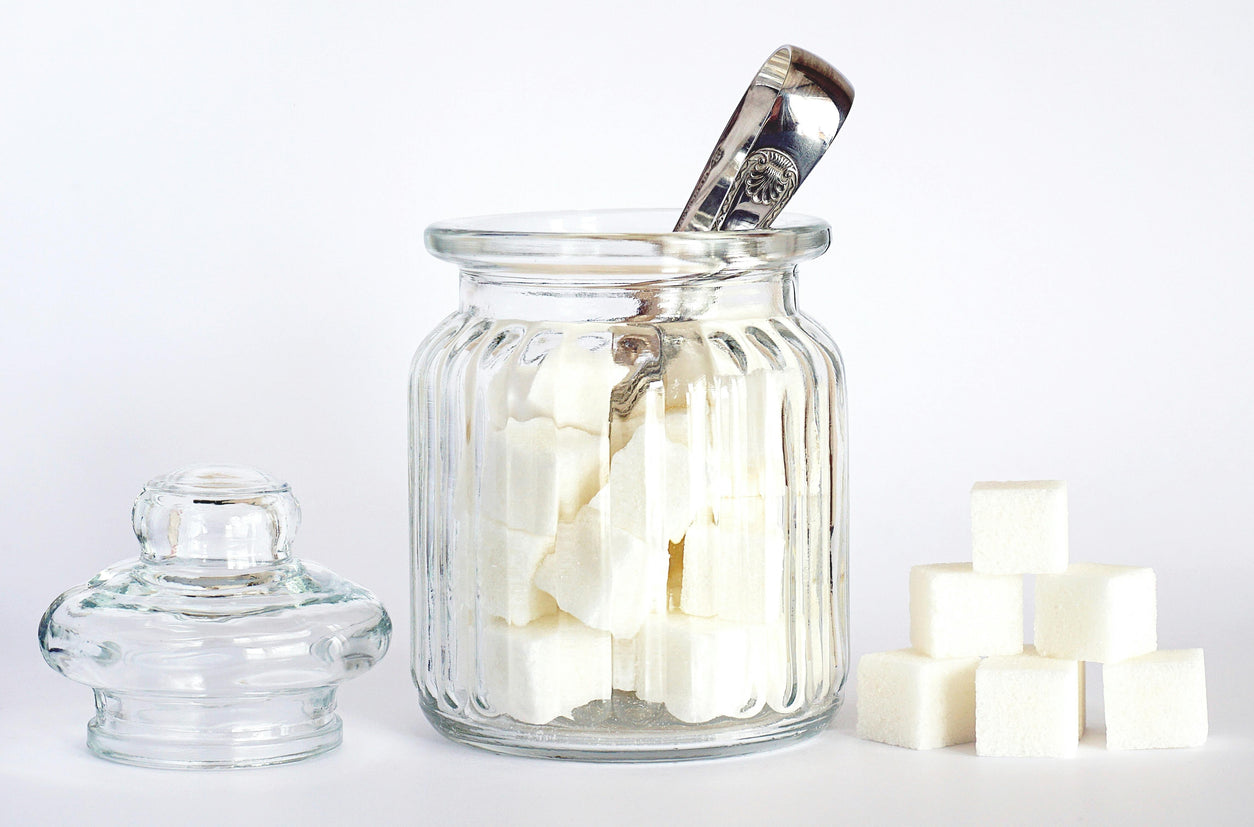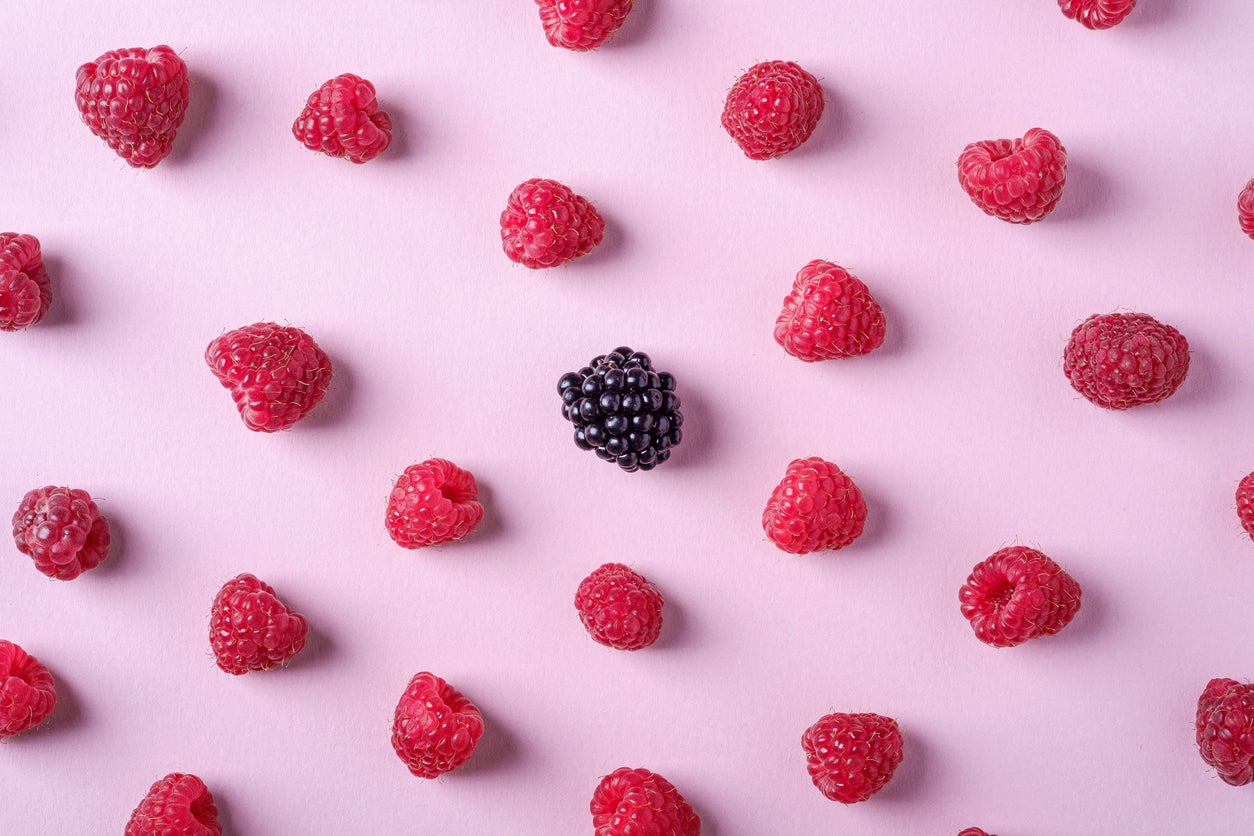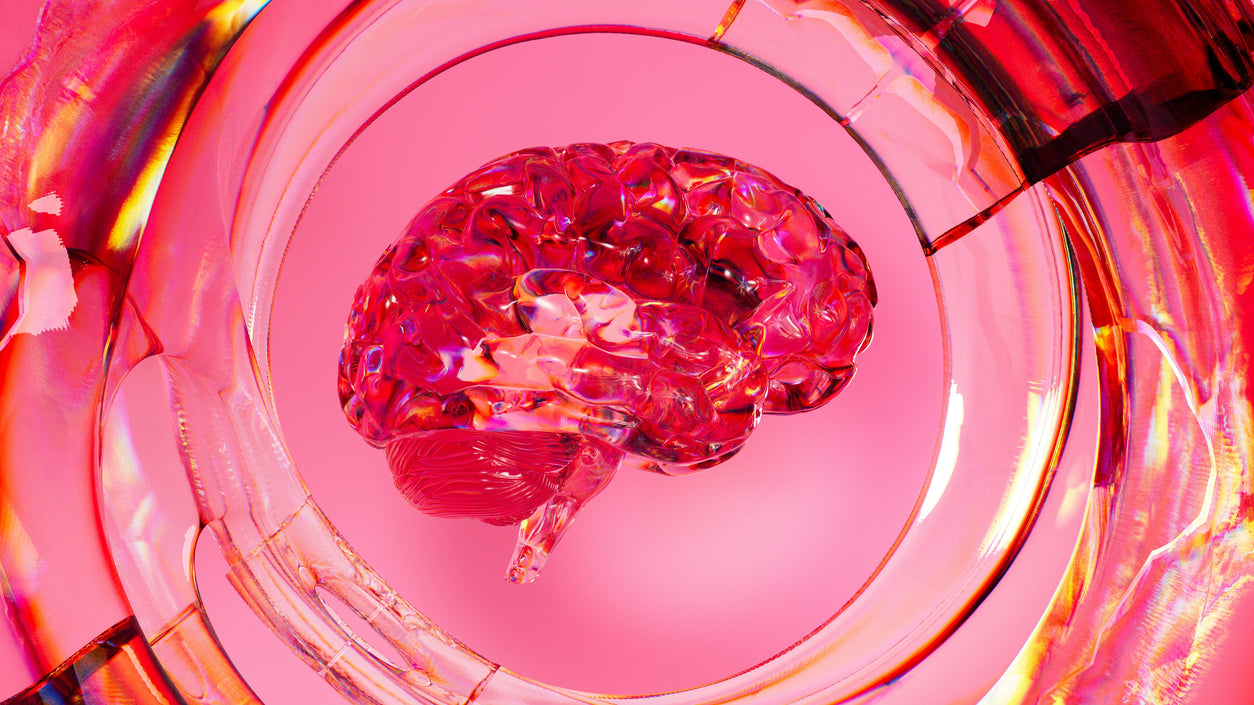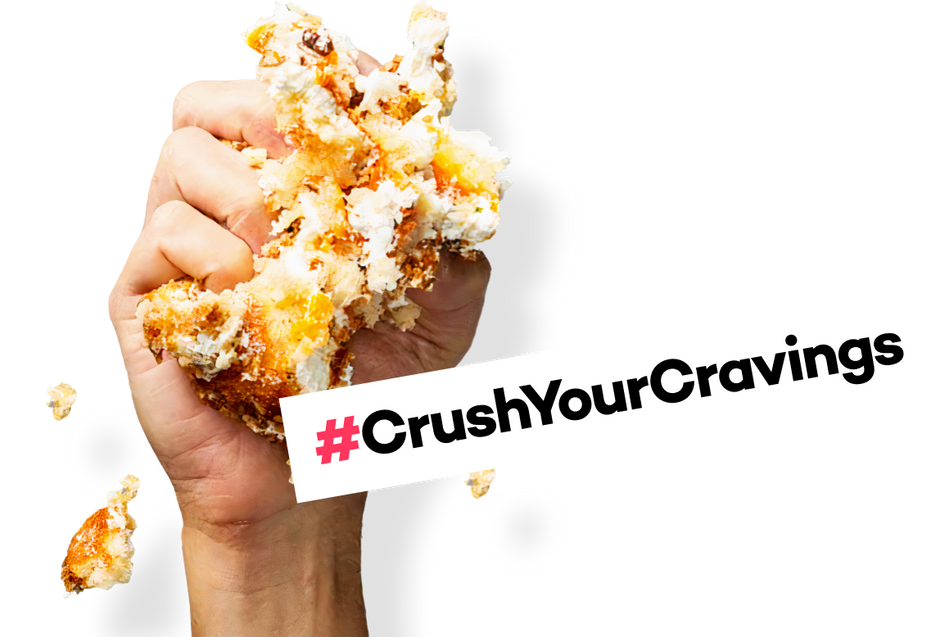Dopamine Foods: How to Boost Your Mood Without Sugar
That blissful yet blink-and-you-miss-it feeling when you enjoy a sugary treat? That’s your body releasing dopamine.
What is dopamine? Think of it as a tiny chemical messenger zipping around your brain, influencing everything from how happy you feel to your ability to focus and move. This neurotransmitter plays a starring role in motivation, reward, and overall well-being.
Our brain releases it whenever we experience something rewarding or pleasurable, like playing a game or ticking something off your to-do list. That’s why it’s known as the feel-good chemical. Dopamine is then used to fuel motivation and help us focus. Low dopamine can leave you feeling like you're running on fumes.
Sounds essential, right?
Sugar was essential to our evolutionary survival tens of thousands of years ago, as foods with high sugar content were scarce. The dopamine mechanism encouraged us to eat as much as we could to survive long harsh winters, and keep us alive! The problem now is that we’ve outgrown our environment and sugar is everywhere, yet we have the same ancestral lust for it!
While sugar might give you a quick dopamine rush, it leaves your brain craving more, creating a vicious cycle - that’s where your sugar cravings come from.
If you're trying to ditch the sugar but find yourself sluggish, uninspired and struggling to focus, there's a natural solution: dopamine-rich foods! By incorporating certain foods into your diet, you can naturally support healthy dopamine production and unlock a happier, more motivated you, without the sugar rollercoaster!
We'll explore the science behind dopamine, discover the best dopamine-boosting foods (think protein-packed snacks and antioxidants!), and look at lifestyle habits that can also optimise dopamine function.
Dopamine-Boosting Foods
Ever wonder how one delicious meal can leave you feeling much more energised, motivated and happier than another equally delicious meal? That’s the dopamine. Some foods promote dopamine production more than others, and, are an invaluable part of a healthy, balanced diet.
Protein: The Building Blocks of Dopamine Production.
Protein isn't just for building muscle; it's also a crucial building block for dopamine.
Our bodies convert an amino acid called L-tyrosine, found abundantly in protein sources, into dopamine. L-tyrosine acts as a starting point for dopamine production.
You can find L-tyrosine in a wide range of protein sources. This includes:
- Eggs
- Fish (especially salmon, tuna and mackerel)
- Poultry (chicken and turkey)
- Lean meats (like beef)
- Nuts and seeds (almonds, walnuts, pumpkin seeds)
- Legumes (fava beans and lima beans)
- Dairy products (milk, cheese and yoghurt)
- Plant-based proteins (soy products, lentils)
Fruits and Vegetables: The Protection of Antioxidants
Antioxidants protect our brain cells against free radicals (unstable atoms) which cause oxidative stress that can damage brain cells and negatively impact dopamine function.
By having a diet high in antioxidants, we can maintain healthier dopamine production and function. Thankfully, Mother Nature has us covered, with plenty of delicious fruits and vegetables bursting with antioxidants, including:
- Berries (like strawberries and blueberries) are packed with anthocyanins, a potent type of antioxidant.
- Green leafy vegetables (spinach and kale) have folate, which helps with the production of dopamine.
- Beets have nitric oxide, which can improve blood flow to the brain.
- Avocados are healthy fats, which help overall brain health, indirectly helping with dopamine production.
Generally, the more colourful your plate, the better the blend of antioxidants.
Comfort Foods with Benefits
While most sugary treats cause an abrupt dopamine spike that leaves you craving more, there are sweet options that have a more sustained, beneficial impact on dopamine levels (including chocolate!).
Lovers of dark chocolate are in luck. Raw cocoa contains cocoa flavanols which are a type of antioxidant that can improve blood flow to the brain and potentially enhance the production and release of dopamine.
To receive the benefits of these flavanols, stick to dark chocolate with at least 70% cocoa content - the higher, the better.
And remember, as with anything, eat in moderation. Chocolate is, sadly, not the answer to everything.
Beyond chocolate, here are a few other dopamine-friendly treats:
- Green tea - a fantastic source of L-theanine, an amino acid known for its calming and focus-enhancing properties that work alongside dopamine.
- Coffee (in moderation) - offers a temporary dopamine boost, but can come with jitters, anxiety and crashes.
- Oatmeal - a complex carbohydrate that offers sustained energy release, indirectly supporting dopamine function by preventing energy dips.
- Olive oil - rich in healthy fats, contributes to overall help with optimal dopamine function.
Winning Food Combinations
It’s not just about what you eat, but how.
Certain foods, when combined, can create a more sustained and impactful response to dopamine production.
Protein + Carbs
Remember how protein provides the building blocks for dopamine with L-tyrosine? Pairing protein with complex carbohydrates like whole grains or vegetables helps regulate blood sugar levels.
This sustained energy release prevents dips that can trigger those pesky cravings and indirectly hinder dopamine function.
Think of pairing eggs with whole-wheat toast for breakfast or grilled chicken with brown rice and roasted vegetables for dinner.
Healthy Fats + Anything
Healthy fats like those found in avocados, olive oil, and nuts play a supporting role in dopamine function. While not directly involved in dopamine production, healthy fats contribute to overall brain health and may enhance the function of dopamine receptors, the sites where dopamine interacts with brain cells. Try to add a moderate amount of healthy fats to your meals so your brain can use dopamine effectively.
Beyond Food: Habits to Increase Dopamine
Dopamine isn’t all about food. While incorporating dopamine-boosting foods is a powerful strategy, it's not the only piece of the puzzle.
A healthy lifestyle also includes exercise, hydration, sleep and mindfulness.
Regular exercise is a potent dopamine booster. Physical activity stimulates the release of dopamine, leading to feelings of well-being and motivation. That’s why you feel so good after a workout. If you can, aim for at least 30 minutes of moderate-intensity exercise most days of the week.
Prioritising a consistent pattern of high-quality sleep will also help. During sleep, your brain consolidates memories, regulates emotions, and rebalances your neurotransmitters, including dopamine. While 8 hours is often quoted as the goal, listen to your body and give it what it needs.
Stress can deplete your dopamine levels, which is why mindfulness practices like meditation, journaling and yoga can help to protect your dopamine. Taking a few minutes each day to focus on your breath and quiet your mind can create a calmer and more dopamine-friendly environment. Remember, practice over perfection.
You may have seen the internet buzzing about “dopamine detoxes” to improve focus and attention spans. This involves avoiding activities that trigger abrupt dopamine releases like social media, video games and sugary treats.
The idea is that by depriving the brain of these instant rewards, it will become more sensitive to dopamine once you reintroduce them.
Right now, there’s only limited scientific evidence for this, so instead, focus on creating healthy habits and just be mindful of your consumption, including entertainment and media.
Final Thoughts
If you’re on a journey to cut back on sugar but find yourself hitting walls of sluggishness, lack of focus or low mood, give dopamine foods a try. With a diet rich in protein and antioxidants, you’ll find it much easier to resist the temptation of your sugary enemy and reach your goals with Killa Vanilla.
Of course, an alternative way to get that dopamine boost is to use Killa Vanilla. Our natural vanilla scent mirrors the common note in sweet food and drinks, so it triggers the Cross-Modal Sensory Compensation Effect when you smell it. This tricks your brain into releasing dopamine, satisfying your cravings.
For the best results, we suggest you use a powerful combination of Killa Vanilla, a balanced diet with dopamine foods and the other healthy habits we’ve mentioned here.










